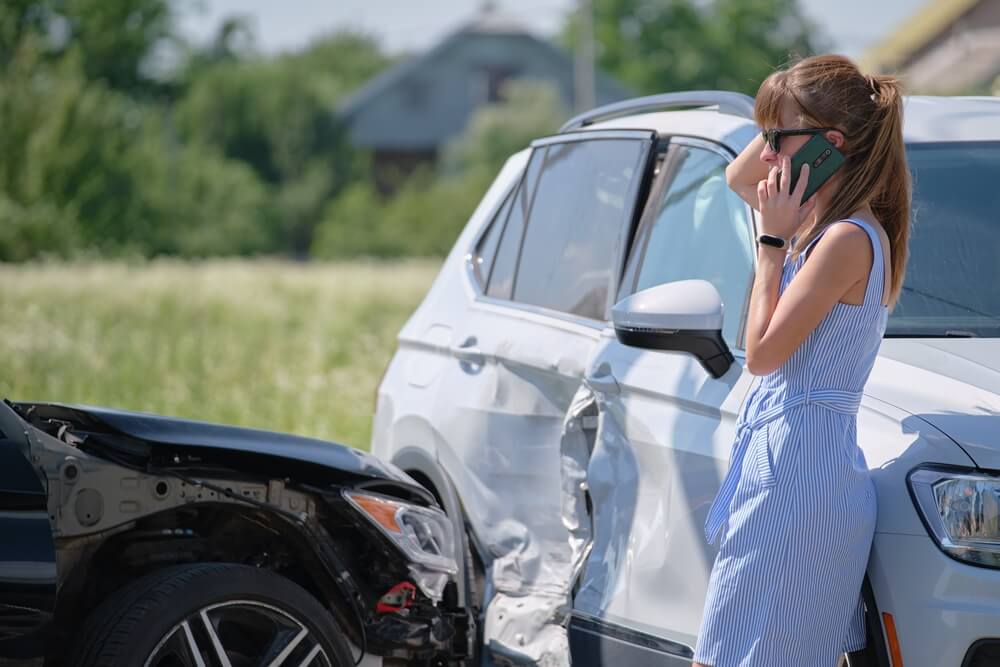
South Carolina drivers must carry liability and uninsured motorist auto insurance coverage to operate their vehicles on state roads legally. South Carolina’s laws specify minimum bodily injury and property damage coverage amounts and allow you to purchase more coverage for greater protection.
Here, we discuss what to know about your auto insurance policy in South Carolina, including the mandatory legal requirements and additional auto insurance coverage options. Due to the complex nature of auto insurance laws and the potential legal and financial consequences of car accidents, it is wise to consult an experienced car accident lawyer if involved in a collision. A personal injury lawyer can help you understand how another party’s insurance coverage and your personal auto insurance may serve as sources of compensation.
Is South Carolina a No-Fault Insurance State?
Some states have “no-fault” insurance systems that allow drivers involved in accidents to file claims with their insurance companies regardless of who caused the wreck. The goal is to speed up the compensation process by not requiring drivers to establish fault to claim compensation for their losses. Typically, no-fault insurance covers medical expenses and lost wages, but it limits a person’s ability to sue for additional losses like pain and suffering.
South Carolina operates under an “at-fault” system for car accident claims. In this system, the driver who caused the accident is responsible for any resulting injuries or property damage. In South Carolina, if you get into an accident, you can file a claim with the at-fault driver’s insurance company to cover your accident-related losses, including the costs of vehicle repairs, medical bills, and other losses like lost wages and pain and suffering due to injuries.
To successfully claim compensation after a South Carolina car crash, you must prove the other driver was at fault. You must gather evidence such as police reports, witness statements, and any available accident video footage. Once you establish fault, the at-fault driver’s insurance should cover your costs up to the other driver’s policy limits. If your losses exceed what their insurance covers, you can pursue further compensation by taking legal action.
What Do the Different Types of Coverage Mean?
In South Carolina, drivers must have liability and uninsured motorist coverage as part of their auto insurance. Insurers must also offer underinsured motorist coverage with every policy, although drivers are not required to carry it.
Here’s an overview of these three types of coverage:
- Liability insurance — Auto liability coverage helps you pay for any physical injuries and property damage you cause others to suffer if you cause a car accident, making you the driver who bears financial responsibility. Bodily injury liability insurance helps cover damage such as medical costs, lost wages, and other losses a person suffers from physical injuries. Property damage liability insurance provides coverage for repairs to damaged property or replacement of property, such as a car, which cannot be repaired. If you are found liable for causing a crash, it will likely cause your auto insurance rates and your premium payments to go up significantly.
- Uninsured motorist (UM) coverage — UM insurance protects you from having to pay out-of-pocket if you are involved in an accident with an uninsured or hit-and-run driver. It covers injuries to you and your passengers and damage to your car.
- Underinsured motorist (UIM) coverage — Like UM coverage, UIM insurance comes into play when an at-fault driver has insurance, but it’s not enough to cover all your losses from an accident. UIM insurance can pay for the difference between what the at-fault driver’s policy will cover and the actual cost of your accident-related losses (up to the UIM policy’s limits).
Are There Some Other Possible Types of Coverage My Policy Might Have?
Yes. You can add several types of insurance to the mandatory coverage in your auto policy to enhance your protection. When you set up your auto insurance policy in South Carolina, you should ask your insurance agent for information about optional coverages such as the following and determine the right coverage for you and your family members:
- Medical payments coverage — Regardless of fault, this optional coverage would cover the medical expenses of you and your passengers. However, medical payments can be limited.
- Comprehensive coverage — Comprehensive coverage pays for damage to your vehicle caused by non-collision events. Examples include natural disasters, theft, vandalism, or hitting an animal.
- Collision coverage — Collision coverage pays for repairs to your vehicle if you collide with another car or object, like a fence or a pole, regardless of fault. If your car is “totaled” in an accident, collision coverage will pay out the value of your vehicle minus your deductible.
- Towing coverage — If your car breaks down or you’re in an accident and need to be towed, this coverage pays for the towing costs and other roadside assistance you may need.
- Rental car coverage — If your car must be in the shop for repairs after an accident, rental car coverage will pay for a rental car so you can keep moving without interruption.
- Travel coverage — If you travel frequently, this coverage can help with the costs of car accidents far from home. It covers travel back to your residence or the continuation of your journey.
What Is the Minimum Requirement for Car Insurance in South Carolina?
South Carolina law sets specific minimum requirements for car insurance to ensure that all drivers have essential protection in case of an accident.
The following minimum policy limits are what you need to have:
- Liability insurance for bodily injury —This insurance covers costs related to injuries you might cause to other people in an accident where you are at fault. The minimum requirement is to carry coverage of $25,000 per person and $50,000 for all persons injured in one accident.
- Liability insurance for property damage — This coverage helps pay for any damage you cause to someone else’s property, including their vehicle, in an accident. You must have at least $25,000 in property damage coverage in South Carolina.
- Uninsured motorist coverage — This insurance protects you if you are in an accident with a driver who does not have insurance. The minimum coverage requirements match your liability insurance’s bodily injury and property damage limits.
Can an Insurer Offer Other Insurance Coverage Amounts?
Yes. You can buy more than the minimum required coverage amounts for car insurance in South Carolina. While the state sets minimum limits to ensure all drivers carry basic insurance, these limits might not provide enough insurance to fully cover all expenses in the event of a severe accident. If the costs exceeded these minimums, you would have to pay the remaining out-of-pocket.
Purchasing higher coverage limits offers better protection and peace of mind. For instance, increasing your liability coverage can help you cover larger medical bills and property damage costs you might cause in an accident. You can also add more comprehensive and collision coverages to protect your vehicle from a wide range of damage costs and related losses.
What Is Meant by ‘Stacking’ Coverage?
“Stacking” coverage after an accident refers to combining the insurance limits of multiple policies or vehicles to increase the total amount of available coverage for your claims. This approach is beneficial when the expenses from an accident exceed the limits of a single insurance policy.
For example, you own three cars, each with $25,000 in UIM coverage. If you are involved in an accident and the at-fault driver’s insurance can only cover a portion of your losses, you can “stack” the UIM coverage from your three vehicles. Instead of being limited to $25,000, you could access up to $75,000 in coverage, significantly increasing your potential for full compensation.
Stacking is particularly beneficial in South Carolina, where the minimum liability coverage requirements might not be sufficient to cover severe injuries or property damage. By stacking UIM coverage from all the vehicles you own, you can ensure a higher level of financial security against accidents caused by drivers whose liability limits cannot cover your costs. This approach makes covering substantial medical expenses and other losses easier without severe financial strain.
Should You Speak with the Other Driver’s Auto Insurance Company?
After an auto accident, the other driver’s auto insurance company might contact you. If this contact happens, you need to be cautious. Generally, it’s wise not to discuss the accident details or negotiate directly with the other driver’s insurer. Instead, you should report the accident to your insurance company and let them handle communications.
Speaking directly with the other driver’s insurance company could lead to complications, especially if you inadvertently admit fault or agree to a settlement lower than what you might be owed. If you feel unsure about the process, consider contacting a lawyer who can guide you on how to proceed. The attorney can communicate on your behalf, protect your rights, and ensure you do not compromise your position in future claims or settlements.
Get Help from an Experienced South Carolina Car Accident Lawyer
Are you seeking clear guidance on your auto insurance claim after a car accident in South Carolina? Contact McKinney, Tucker & Lemel LLC today. With decades of experience representing local clients like you, our team knows how to provide highly effective advocacy at affordable rates. Don’t just take our word for it. Hear what our satisfied clients have to say. We are here to guide you through the process and seek your due compensation. To learn more, call or reach us online and receive an initial consultation.
